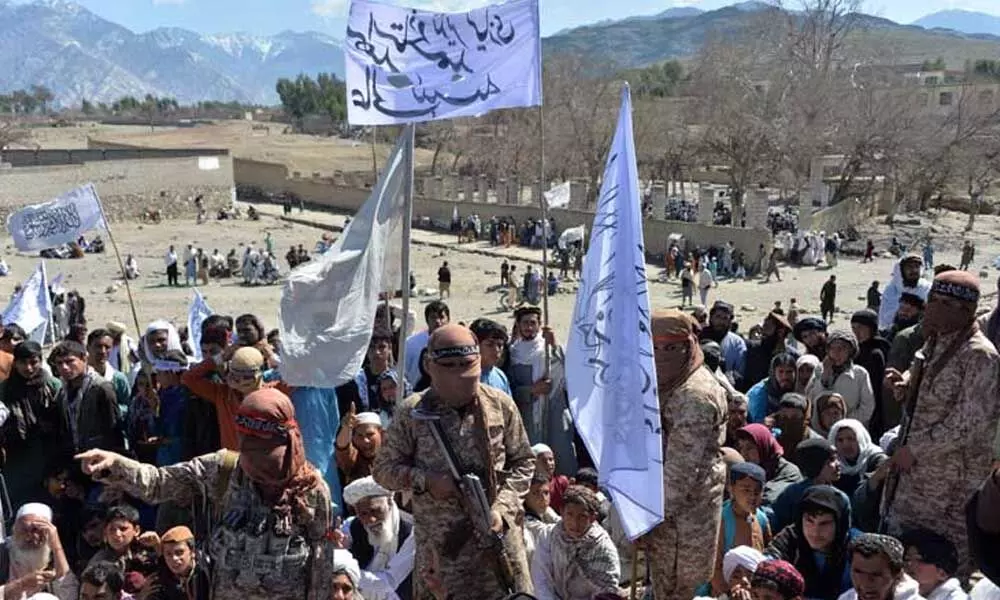Taliban: India's continuing blind spot

Taliban: India's continuing blind spot
It is difficult to overstate the depth of India’s opposition to Afghanistan-based militancy that bears a Pakistani signature, and India’s corresponding commitment to fortify Kabul as a counterterrorism partner
It is difficult to overstate the depth of India's opposition to Afghanistan-based militancy that bears a Pakistani signature, and India's corresponding commitment to fortify Kabul as a counterterrorism partner. The era of Taliban rule (1996–2001) was the nadir of India-Afghanistan relations. India had reasonably good ties with Afghanistan's monarchist, republican, and communist regimes preceding the Taliban's ascendancy.
New Delhi hastily evacuated its embassy after the Taliban swept into Kabul in 1996, and the Taliban, with military backing from Pakistan, forced India's Afghan allies to retreat into an embattled northern redoubt. Pakistan's military establishment envisioned the emergence of the Taliban "as a fortification against India to the East." Under the Taliban, Afghanistan became a training ground for Islamabad-sponsored militants waging a guerrilla war in Indian-administered Kashmir. During the late 1990s, Pakistan's principal intelligence agency, the Inter-Services Intelligence (ISI), relocated many of its Kashmir-focused proxies into eastern Afghanistan to evade US pressure on Pakistan to curb militant infiltration.
The last publicly known negotiations conducted between the Taliban and New Delhi in 1999 also cast an enduring shadow over Indian perceptions of the group. At the time, militants affiliated with the Pakistan-based outfit Harakat-ul-Mujahideen hijacked an Indian commercial plane, eventually forcing it to land in the Afghan province of Kandahar.
The Taliban government mediated a hostage exchange that led to the release of extremist leader Masood Azhar—a swap that continues to haunt India to this day. Shortly after his release, Azhar founded Jaish-e-Mohammad (JeM), a group that attacked the Indian Parliament building in December 2001. In 2016, JeM reportedly carried out a major attack on an Indian air base, and in February 2019 it claimed responsibility for the worst terrorist act committed in Indian-administered Kashmir in three decades.
The UN later sanctioned Azhar for supporting terrorism, yet he remains at large in Pakistan and probably shielded by its security agencies. JeM plays a minor role in the Taliban's war against Kabul, and the group splintered soon after Pakistan backed the US invasion of Afghanistan in 2001. Still, JeM's long association and ideological kinship with the Taliban remain of grave concern to us.
Years after the hostage exchange, Ajit Doval, one of the key negotiators involved and who is now India's national security adviser, lamented, "Nobody should have been swapped, least of all Masood Azhar." Moreover, India is alarmed by the presence of another anti-Indian terrorist group in the Afghan conflict, Lashkar-e-Tayyiba (LeT). LeT, a loyal proxy of the Pakistani military more cohesive and lethal than JeM, was forged in the crucible of the anti-Soviet war. In 2008 the group carried out multiple attacks in India's financial capital of Mumbai that left 166 dead, including six Americans.
In Afghanistan, LeT has attacked Indian diplomatic facilities, government employees, and aid workers. LeT augments the Taliban's capabilities with expertise and fighters. Yet LeT does not claim responsibility for the violence it perpetuates in Afghanistan to avoid provoking international pressure on Islamabad, according to former State Department intelligence analysts.
LeT's influx into Afghanistan enables ISI to gather intelligence on the "militant state of play across the border." Indian security officials estimate "hundreds" of LeT militants are fighting in Afghanistan. Modi-baiters are questioning India's sensitive handling of the Afghan situation ignoring contemporary history. Or is it their ignorance?

